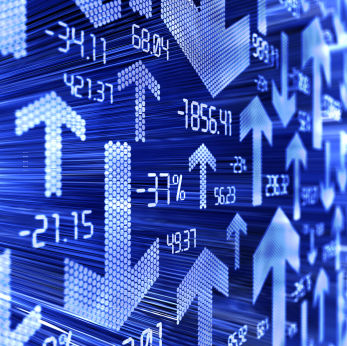http://www.bloomberg.com/news/2013-09-05/china-joins-europe-in-syria-economic-risk-warning-at-g-20-summit.html
the koyal group economy reviews, China Joins Europe in Syria Economic Risk Warning at G-20 Summit
China and Europe at a Group of 20 summit hosted by Russia warned that U.S.-led strikes on Syria would risk harming the global economy, bolstering efforts to rally opposition to the proposed attack.
“Such a military action will definitely have a negative impact on the world economy, especially on the oil price,” Chinese Vice Finance Minister Zhu Guangyao told reporters in St. Petersburg today. “We hope that this issue could be solved at the United Nations and through diplomatic channels.”
U.S. President Barack Obama, who has asked Congress to endorse a punitive strike on Syrian President Bashar al-Assad’s forces after an alleged chemical attack on civilians, is trying to enlist international support at the G-20 meeting. Italy and Germany have joined Russia and China in insisting they won’t support military intervention in Syria without approval from the United Nations Security Council.
Italian Prime Minister Enrico Letta said any such operation would cause volatility on financial markets. “We don’t need volatility, we need stability,” he said. “We are concerned about it.”
Russia, a Soviet-era ally of Syria, and China, both veto-wielding members of the Security Council, have repeatedly blocked any action against Assad over a 2 1/2-year civil war that has killed more than 100,000 people.
Oil Effect
The possibility of renewed conflict in the Middle East comes as the expected tapering of U.S. stimulus measures is causing concern of spillover effects in emerging markets. Brent may rise to $120-$125 a barrel if the U.S. and allies begin military action in Syria and may “spike briefly” to $150 if a U.S.-led attack on Syria sparks further conflict in the Middle East and supply disruptions, Michael Wittner, Societe Generale SA (GLE)’s New York-based head of oil market research, said in a report on Aug. 30.
“The concern for everyone is that a rise in oil prices would pose a risk to economic recovery,” Capital Economics Ltd. economist Julian Jessop, said by phone from London today. “It remains to be seen if the current rate of growth will continue if oil prices stay at today’s levels or even rise.”
The 17-nation euro area returned to growth in the second quarter after 18 months of recession.
‘Negative Influence’
The BRICS group of major emerging economies, which includes Russia, South Africa, China, India and Brazil, today discussed the risk posed by a Syria strike on the sidelines of the G-20 summit, said Dmitry Peskov, Russian President Vladimir Putin’s spokesman.
They agreed that it would lead to an “extraordinary negative influence on the economy,” Peskov told reporters.
China today also urged the U.S. to limit global risks from shifts in monetary policy, with Indonesia warning the changing stance is spurring capital outflows as the G-20 leaders met.
The U.S. should be mindful of a possible “very significant spillover effect,” said Zhu, the deputy finance minister, speaking through an interpreter.
Emerging markets, which helped pull the world out of a recession after the global financial crisis, now face an exodus of cash and sliding currencies in anticipation of the Federal Reserve’s eventual tapering of its $85 billion in monthly bond purchases.
‘Collateral Damage’
The risk of military strikes on Syria threatens to weaken the global economic expansion, say economists from banks including Deutsche Bank Securities Inc. and Nomura Holdings Inc.
Deutsche Bank economist Carl Riccadonna wrote in an Aug. 27 report that rising gasoline prices could inflict “collateral damage” on economic confidence and consumption this year.
Capital Economics’ Jessop calculates that in the worse-case scenario, a jump to $150 a barrel, would threaten “stagnation” by knocking 1 percentage point off international expansion.
China’s Zhu said his country is in consultations with the International Monetary Fund on the fallout from Syria and cited the Washington-based lender’s forecasts that a $10 per barrel increase in oil a quarter percentage point off global growth.
European Central Bank President Mario Draghi said today that the euro area is “alert to the geopolitical risks that may come out of the Syrian situation.”
‘Very Cautious’
“I’m very, very cautious about the recovery,” Draghi said at his monthly press conference in Frankfurt. “I can’t share enthusiasm. It’s just the beginning. Let’s see. These shoots are still very, very green.”
The ECB kept its benchmark interest rate unchanged today at a record low after the euro area returned to growth in the second quarter. Gross domestic product expanded 0.3 percent in the three months through June after six quarterly contractions and recent economic indicators point to the rebound continuing.
Analysts surveyed by Bloomberg News last month see growth in China slowing to 7.3 percent in the fourth quarter, the weakest in more than four years, after 7.5 percent in the July-September period, based on median estimates.
Even though an attack on Syria may benefit Russia by sending oil prices higher, a major split with the U.S. and its European allies would deter investors, according to Chris Weafer, a senior partner at Moscow-based Macro Advisory.


 Log in with Facebook
Log in with Facebook 





